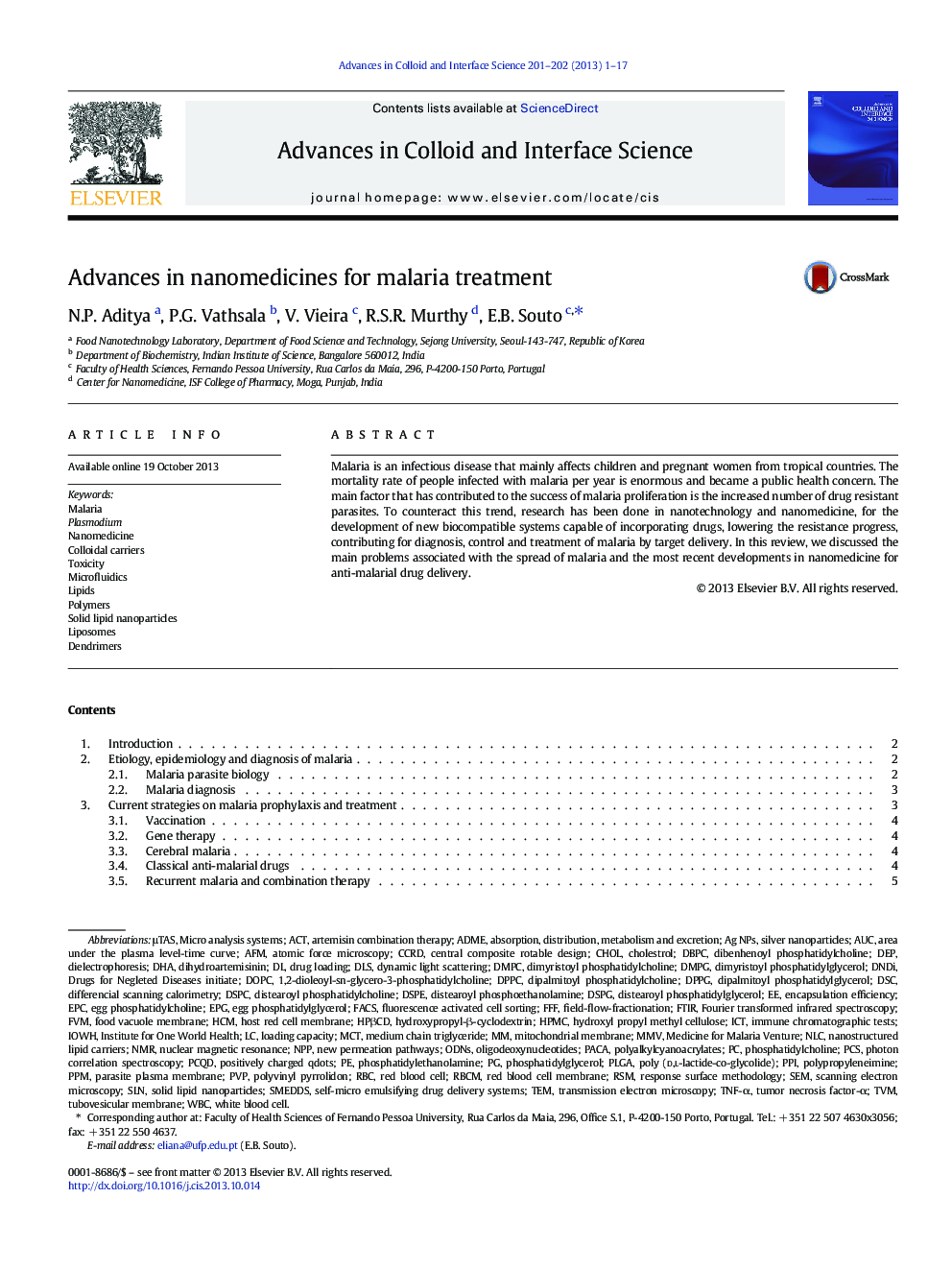| Article ID | Journal | Published Year | Pages | File Type |
|---|---|---|---|---|
| 590768 | Advances in Colloid and Interface Science | 2013 | 17 Pages |
•Nanomedicine has contributed to the development of therapies for Malaria.•Colloidal carriers are able to lower the drug resistance progress, contributing to diagnosis.•Advanced colloidal carriers can be used to overcome multi-drug resistance.
Malaria is an infectious disease that mainly affects children and pregnant women from tropical countries. The mortality rate of people infected with malaria per year is enormous and became a public health concern. The main factor that has contributed to the success of malaria proliferation is the increased number of drug resistant parasites. To counteract this trend, research has been done in nanotechnology and nanomedicine, for the development of new biocompatible systems capable of incorporating drugs, lowering the resistance progress, contributing for diagnosis, control and treatment of malaria by target delivery. In this review, we discussed the main problems associated with the spread of malaria and the most recent developments in nanomedicine for anti-malarial drug delivery.
Graphical abstractThe main factor that contributes to the success of malaria proliferation is the increased number of drug resistant parasites. To counteract this trend, research has been done in nanotechnology and nanomedicine, for the development of new biocompatible systems capable of incorporating drugs, lowering the resistance progress, contributing for diagnosis, control and treatment of malaria by target delivery. This scheme represents the sequential steps involved in the development of anti-malarial drugs.Figure optionsDownload full-size imageDownload as PowerPoint slide
